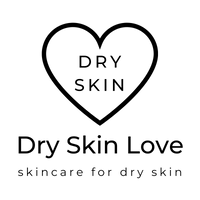Hemp seed oil is a natural oil that is derived from the seeds of the hemp plant.
Cold-pressed, unrefined hemp seed oil is a vibrant green color, with a nutty flavor.
Hemp seed oil is packed with essential nutrients and has many benefits for your skin.
- What is hemp seed oil?
- How is hemp seed oil made?
- What does hemp seed oil smell like?
- What color is hemp seed oil?
- What does hemp seed oil feel like?
- What is composition of hemp seed oil?
- Does hemp seed oil clog pores?
- Summary
- References
What is hemp seed oil?
INCI: Cannabis sativa (Hemp) Seed Oil
Extraction Method: cold pressed
Appearance: light green to dark green color
Texture: light to medium, quick absorbing
Aroma: earthy, nutty and grassy
Hemp seed oil is obtained by pressing hemp seeds from the hemp plant and extracting the oil.
Cold-pressed, unrefined hemp seed oil is a vibrant green color, with an earthy, nutty flavor.
Hemp seed oil should not be confused with hash oil or cannabis oil, which also comes from the cannabis plant, and contain psychoactive cannabinoids THC and/or CBD.
Hemp seed oil has a long history of safe and effective use (Callaway et al, 2004).

How is hemp seed oil made?
Hemp seed oil, also known as hemp oil or hempseed oil, is derived from the seeds of the hemp plant (Cannabis sativa).
Here's a general overview of the process involved in making hemp seed oil:
-
Harvesting: Mature hemp plants are harvested, typically when the seeds have fully developed.
-
Seed Cleaning: The harvested hemp seeds are cleaned to remove any impurities such as plant debris, dirt, or stones.
-
Seed Crushing: The cleaned hemp seeds are then mechanically crushed or pressed to extract the oil. This process may involve various methods such as cold pressing, expeller pressing, or solvent extraction.
-
Cold Pressing: This method involves using a mechanical press to apply pressure to the hemp seeds, extracting the oil without the use of heat. Cold pressing helps preserve the nutritional profile of the oil.
-
Expeller Pressing: Similar to cold pressing, expeller pressing also uses mechanical pressure but may involve slight heating. The heat generated during this process is typically low to avoid damaging the oil's delicate nutrients.
-
Solvent Extraction: In this method, a solvent, such as hexane, is used to extract oil from the hemp seeds. The solvent helps dissolve the oil, and then it is separated from the solvent through evaporation.
-
-
Filtration: After the oil is extracted, it undergoes a filtration process to remove any remaining solids or impurities. This step ensures a cleaner and clearer oil.
-
Bottling and Storage: The filtered hemp seed oil is typically stored in dark, airtight containers to protect it from light and oxygen, which can cause oxidation and degradation of the oil. Proper storage helps maintain the oil's freshness and quality.
It's important to note that hemp seed oil is different from cannabis oil, which is extracted from the flowers, leaves, and stalks of the hemp plant and contains cannabinoids like cannabidiol (CBD).
Hemp seed oil does not contain significant amounts of cannabinoids and is primarily valued for its nutritional properties, including essential fatty acids and vitamins.

What does hemp seed oil smell like?
The smell of hemp seed oil depends on how it is processed and refined.
Hemp seed oil has a distinct aroma that is often described as a combination of earthy, nutty, and grassy scents. Some people also detect a slightly sweet or herbal undertone in the smell. The scent can vary slightly depending on the quality and processing of the oil, but overall, it tends to have a characteristic and recognizable aroma.
Unrefined hemp seed oil has the strongest aroma.
Refined hemp seed oil has the mildest aroma.

What color is hemp seed oil?
The color of hemp seed oil depends on how it is processed and refined.
Cold-pressed, unrefined hemp seed oil is a rich vibrant green to dark green liquid.
In contrast, refined hemp seed oil has a pale yellow to golden yellow liquid.

What does hemp seed oil feel like?
Hemp seed oil has a lightweight consistency and is easily absorbed into the skin, making it suitable for various skin types, including oily and acne-prone skin.
Unrefined hemp seed oil is easily absorbed in to the skin.
Refined hemp seed oil feels a bit heavier, and absorbs into skin at average speed, leaving a slight oil feeling left on skin.

What is composition of hemp seed oil?
Cold-pressed, unrefined hemp seed oil is packed with essential nutrients, including fatty acids, vitamins and antioxidants (Leizer et al, 2000).
Hemp seed oil is composed of fatty acids including:
- 56% linoleic acid (n-6)
- 16% alpha-linolenic acid (n-3)
- 11% oleic acid (n-9)
- 5% gamma-linolenic acid
Hemp seed oil contains 56% linoleic acid, the major essential n-6 fatty acid found naturally in our skin barrier. Linoleic acid is a precursor for ceramides (Breiden et al, 2014), which are bioactive lipids that play a role in keeping our skin barrier firm, smooth and healthy.
Learn more: What is Linoleic Acid? Omega 6 Essential Fatty Acid for Dry Skin
Hemp seed oil contains 16% alpha-linolenic acid, an essential omega 3 fatty acid that calms redness and irritation (McCusker et al, 2010).
Hemp seed oil contains 11% oleic acid; an omega-9 fatty acid found naturally in the protective outer layer of the skin.
Hemp seed oil contains 5% gamma-linolenic acid, a unique n-6 fatty acid with potent anti-inflammatory activity (Kapoor et al, 2006).
Hemp seed oil is also rich in vitamin E, and phytosterols including β-sitosterol, phytol and campesterol.
Learn more: 5 Benefits Hemp Seed Oil for Dry Skin
Because hemp seed oil is derived from the seeds of hemp plants, rather than the stalks and leaves, it contains only trace amounts of cannabinoids such as THC and CBD.

Does hemp seed clog pores?
Hemp seed oil is generally considered non-comedogenic, which means it has a low likelihood of clogging pores. It has a lightweight consistency and is easily absorbed into the skin, making it suitable for various skin types, including oily and acne-prone skin.
Hemp seed oil has a unique fatty acid profile, rich in omega-3 and omega-6 fatty acids, as well as other beneficial compounds such as vitamins and antioxidants. These properties make it nourishing for the skin without causing excessive oiliness or pore congestion.
However, it's important to note that individual reactions to skincare products can vary. While hemp seed oil is unlikely to clog pores for most people, it's always recommended to patch test new products on a small area of your skin before applying them to larger areas of your face or body.
If you have specific concerns or sensitivities, it's advisable to consult with a dermatologist or skincare professional for personalized advice.

Summary
Hemp seed oil is derived from the seeds of the hemp plant.
Cold-pressed, unrefined hemp seed oil is a vibrant green color, with a nutty flavor.
Hemp seed oil has a lightweight consistency and is easily absorbed into the skin, making it suitable for various skin types, including oily and acne-prone skin.
Hemp seed oil is packed with essential nutrients, including fatty acids, vitamins and antioxidants, and has many benefits for your skin.
References
Breiden B., Sandhoff K. The role of sphingolipid metabolism in cutaneous permeability barrier formation. Biochim. Biophys. Acta. 2014;1841:441–452.
Brown A, Butcher M. A guide to emollient therapy. Nurs Stand. 2005 Feb 23-Mar 1;19(24):68, 70, 72 passim.
Callaway. Hempseed as a nutritional resource: An overview. Euphytica. 2004;140:65-72.
Callaway, et al. Efficacy of dietary hempseed oil in patients with atopic dermatitis. J Dermatolog Treat. 2005 Apr;16(2):87-94.
Chen, et al. Analytical characterization of Hempseed (seed of Cannabis sativa L.) oil from eight regions in China. J Diet Suppl. 2010 Jun;7(2):117-29.
Chen, et al. The isolation and identification of two compounds with predominant radical scavenging activity in hempseed (seed of Cannabis sativa L.). Food Chem. 2012 Sep 15;134(2):1030-7.
Kapoor, et al. Gamma linolenic acid: an antiinflammatory omega-6 fatty acid. Curr Pharm Biotechnol. 2006 Dec;7(6):531-4.
Leizer, et al. The Composition of Hemp Seed Oil and Its Potential as an Important Source of Nutrition. J Nutraceut, Funct Med Food. 2000;2(4):35-53.
Masaki H. Role of antioxidants in the skin: anti-aging effects. J Dermatol Sci. 2010 May;58(2):85-90.
McCusker, et al. Healing fats of the skin: the structural and immunologic roles of the omega-6 and omega-3 fatty acids. Clin Dermatol. 2010 Jul-Aug;28(4):440-51.
Moncrieff G, Cork M, Lawton S, Kokiet S, Daly C, Clark C. Use of emollients in dry-skin conditions: consensus statement. Clin Exp Dermatol. 2013 Apr;38(3):231-8; quiz 238.
Montserrat, et al. Hemp ( Cannabis sativa L.) Seed Oil: Analytical and Phytochemical Characterization of the Unsaponifiable Fraction. J Agric Food Chem. 2014 Feb 5;62(5):1105-10.
Newton H. Using emollients to promote safe and effective skin care for patients. Nurs Stand. 2021 Oct 6;36(10):77-82.
Porto, et al. Potential Oil Yield, Fatty Acid Composition, and Oxidation Stability of the Hempseed Oil from Four Cannabis sativa L. Cultivars. J Diet Suppl. 2014 Feb 19.
Thiele JJ, Ekanayake-Mudiyanselage S. Vitamin E in human skin: organ-specific physiology and considerations for its use in dermatology. Mol Aspects Med. 2007 Oct-Dec;28(5-6):646-67.
Author Information

Dr. Natasha Ryz is a scientist and formulator with over a decade of experience. She blends nature and science to create high-performance skincare for dry skin.
She trained in Organic Skincare Formulation at Formula Botanica and the School of Natural Skincare, earning 200+ hours of specialized education and a diploma in Beauty Brand Business Management.
With a PhD in Experimental Medicine from UBC and 15+ years of research in microbiology, immunology, and biochemistry, Dr. Ryz ensures every formulation is both effective and luxurious, delivering results with a rich sensory experience.



